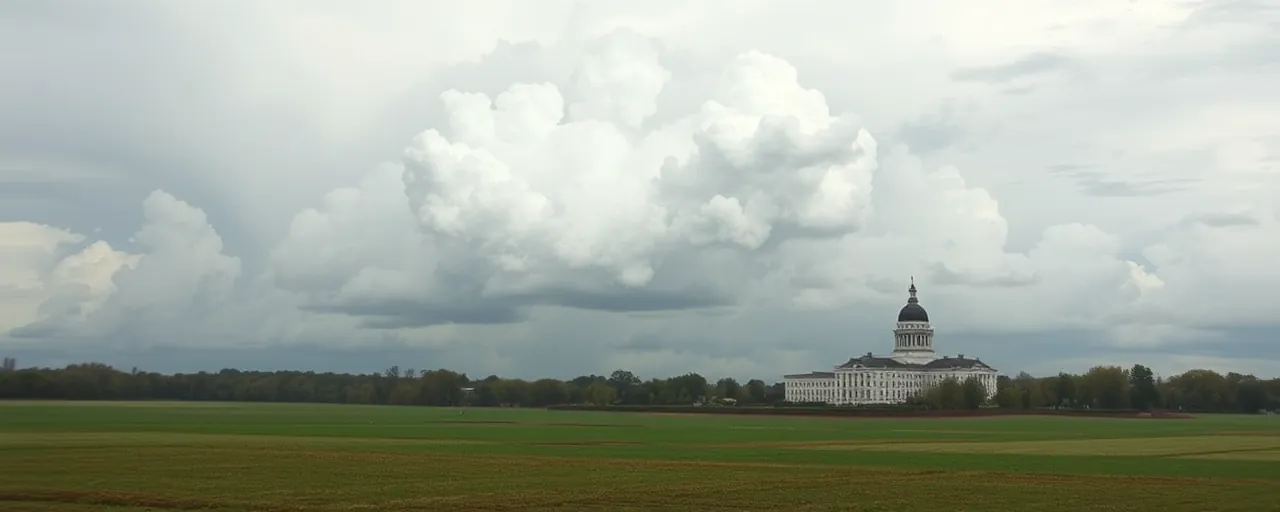A High-Stakes Legal Battle
The U.S. Supreme Court is poised to decide a case that could fundamentally alter the balance of power between the president and independent federal agencies, with the Federal Reserve at the heart of the debate. At issue is whether the president can remove heads of agencies like the National Labor Relations Board and the Merit Systems Protection Board without cause, a decision that could extend to the Fed’s leadership. The outcome may determine whether the president gains unprecedented authority over monetary policy, a prospect that has sparked intense discussion among legal scholars, economists, and policymakers.
The case stems from President Donald Trump’s efforts to dismiss agency officials protected by laws requiring cause for removal, such as neglect of duty or malfeasance. The administration argues that these protections violate the Constitution by limiting the president’s ability to oversee the executive branch. For the Federal Reserve, which operates with significant autonomy to maintain economic stability, such a ruling could allow the president to replace its chair, currently Jerome Powell, at will, potentially politicizing decisions on interest rates and inflation.
This legal fight arrives at a time of heightened economic uncertainty. Public trust in the Federal Reserve has waned, with surveys showing that perceptions of its independence vary sharply along partisan lines. The possibility of direct presidential influence over the Fed has raised alarms about market volatility and the erosion of global confidence in U.S. monetary policy. Yet, some argue that greater presidential oversight could ensure that agencies align more closely with the public’s priorities.
The Case for Presidential Authority
Advocates for expanding presidential power assert that the Constitution grants the president broad authority to remove executive branch officials. They argue that laws shielding agency heads from dismissal without cause, rooted in the 1935 Supreme Court decision Humphrey’s Executor v. United States, undermine democratic accountability. By restricting the president’s ability to fire agency leaders, these protections create a system where unelected officials wield significant power without sufficient oversight, according to this view.
The Department of Justice, aligning with this perspective, has stated it will no longer defend removal protections for multi-member commissions, calling them unconstitutional. Supporters of this stance, including some legal scholars, contend that the president must have the flexibility to ensure that agencies like the Federal Reserve reflect administration priorities. They point to recent executive orders aimed at increasing White House control over agency rulemaking as evidence of the need for stronger executive leadership in a complex regulatory environment.
Defending Agency Independence
On the other side, those advocating for agency independence argue that insulating institutions like the Federal Reserve from presidential control is essential for maintaining expertise and stability. The Fed’s structure, with a board of governors serving long, staggered terms and removable only for cause, was designed to shield monetary policy from short-term political pressures. Legal experts emphasize that this autonomy allows the Fed to make decisions based on economic data rather than electoral cycles, fostering consistency in managing inflation and employment.
Policymakers and scholars defending this view warn that removing these protections could destabilize markets and erode public trust. For instance, if a president could fire the Fed chair over disagreements on interest rates, it might lead to abrupt policy shifts that unsettle investors. Historical precedents, such as the Fed’s role in navigating the 2008 financial crisis, underscore the value of its independence in responding to economic challenges without political interference.
Economic and Political Implications
The stakes of the Supreme Court’s decision extend beyond legal theory to tangible economic consequences. Recent events, including public calls from President Trump for lower interest rates, have already stirred market uncertainty. Economists warn that undermining the Fed’s independence could lead to increased volatility, as investors question the reliability of U.S. monetary policy. A loss of global confidence could weaken the dollar and raise borrowing costs, with ripple effects across industries.
Political polarization further complicates the debate. Surveys from early 2025 reveal that trust in the Federal Reserve often depends on whether individuals view it as aligned with their political preferences. This divide has intensified scrutiny of the Fed’s actions, making its independence a lightning rod for criticism. A ruling that expands presidential power could deepen these tensions, as future administrations might face pressure to exert influence over the Fed to satisfy their supporters.
A Shifting Legal Landscape
The Supreme Court’s recent rulings signal a broader shift in how it views agency authority. In 2024, the Court overturned Chevron deference, a decades-old doctrine that allowed agencies to interpret ambiguous laws. This decision, coupled with others expanding judicial oversight of regulations, reflects a growing skepticism of agency power. The pending case on removal protections could further tilt the balance toward the executive branch, potentially reshaping the structure of the federal government.
Legal experts are divided on how the Court might rule. Some predict it could strike down removal protections for labor boards while carving out an exception for the Federal Reserve, recognizing its unique role in the economy. Others believe the Court may issue a broader ruling that applies to all independent agencies, fundamentally altering their relationship with the president. The decision, expected in the coming months, will likely set a precedent for decades.
Looking Ahead
As the Supreme Court deliberates, the debate over agency independence touches on core questions about governance. How should expertise and accountability be balanced in a democracy? Can institutions like the Federal Reserve remain insulated from political pressures in an era of deep polarization? The answers will shape not only monetary policy but also the broader regulatory framework that governs everything from labor rights to environmental protections.
For now, the nation awaits a decision that could redefine the boundaries of presidential power. Its outcome will reverberate through the economy, influencing how Americans experience everything from mortgage rates to job security. Whatever the Court decides, the conversation about the role of independent agencies in a democratic society is far from over.
